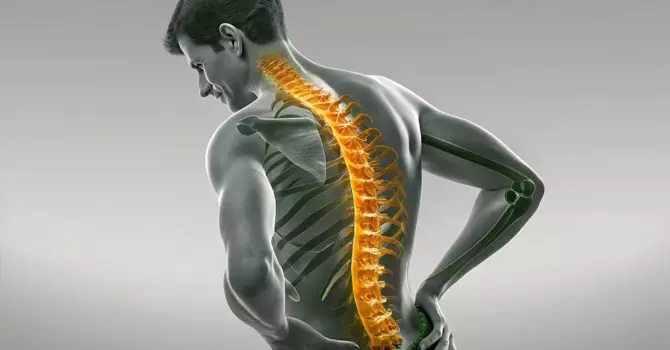
The Role of Protein in Recovery and Performance
When most people think about nutrition for recovery and performance, carbohydrates often take center stage. But when it comes to repairing tissues, building strength, and supporting long-term performance, protein is arguably the most essential macronutrient, regardless of your fitness level or training goal.
Whether you're an athlete, an active professional, or someone recovering from an injury, adequate protein intake is essential for optimal health and function.
In this post, we'll break down what protein does in the body, how much you need, and how it influences both short-term recovery and long-term performance.
What Is Protein—and Why Is It So Important?
Protein is one of the three macronutrients—carbohydrates, and fats are the others—and is composed of amino acids, which serve as the building blocks for nearly every structure and function in the human body.
Protein plays a vital role in:
- Tissue repair and recovery
- Enzyme and hormone production
- Immune system function
- Muscle growth and maintenance
- Transport of oxygen and nutrients
Unlike carbohydrates and fats, the body does not store protein; it must be replenished regularly through the diet.
How Protein Supports Recovery
Recovery is more than just feeling rested; it's the physiological process of repairing tissues, reducing inflammation, and returning to baseline (or better) after physical activity or stress.
Here's how protein helps:
1. Muscle Repair and Growth
Resistance training and other forms of exercise can cause microscopic damage to the muscle tissue. Protein provides the amino acids needed for tissue repair and growth signaling pathways.
2. Reduced Muscle Soreness
Adequate post-exercise protein intake can help reduce delayed onset muscle soreness (DOMS) and facilitate a faster return to full function.
3. Immune Function
Physical stress from intense training temporarily suppresses the immune system. Protein helps restore immune cell function and resilience, thereby reducing the risk of illness during intense training periods.
4. Hormonal and Enzymatic Support
Protein is required to synthesize important hormones (like insulin and growth hormone) and enzymes that facilitate tissue repair and metabolism.
Protein and Athletic Performance
While protein is key for recovery, it also directly enhances performance, especially when combined with structured training.
1. Improved Strength and Power
Sufficient protein intake supports the gain of lean muscle mass, leading to improved strength, power, and work capacity.
2. Enhanced Endurance
Endurance athletes also benefit from protein to:
- Maintain lean mass during long-duration training
- Support mitochondrial function
- Speed up recovery between sessions
3. Body Composition and Metabolism
Protein is more thermogenic (it burns more calories during digestion) and is more satiating than carbs or fat. It helps:
- Support fat loss while preserving muscle mass
- Improve metabolic rate
- Stabilize sugar during high-energy demand
How much Protein Do You Need?
The outdated Recommended Dietary Allowance (RDA) for protein is 0.8 grams per kilogram of body weight, but this is based on the minimum needed to prevent deficiency—not to optimize health, recovery, or performance.
More current guidelines suggest:
- Sedentary individuals: 1.2 g/kg of body weight
- Active individuals: 1.2-2.0 g/kg
- Strength and power athletes: 1.6-2.4 g/kg
- Endurance athletes: 1.4-2.2 g/kg (requirements may be higher after strenuous training days)
- Older individuals: 1.2-2.0 g/kg (to combat age-related muscle loss)
- Rehabilitation or injury recovery: 1.5-2.5 g/kg
At Arthrology Chiropractic, we recommend a starting point of 1.7-2.2 g/kg for most of our active patients and then make individual adjustments based on their specific needs and goals.
Protein Timing: Does It Matter?
Yes—and no
Total daily intake is the most critical factor, but timing can enhance recovery and muscle protein synthesis when managed well.
Best Practices:
- Spread intake throughout the day (20-60g per meal)
- Prioritize a dose of protein within 30-60 minutes post-exercise
- Eat a high-protein breakfast shortly after waking
- Include protein with every meal and snack to maintain a positive nitrogen balance
This approach ensures consistent amino acid availability, preventing prolonged gaps that can promote muscle breakdown.
Best Dietary Sources of Protein
Animal-Based Sources (complete proteins):
- Eggs
- Poultry (chicken, turkey)
- Lean red meat (beef, bison, venison)
- Fish (salmon, tuna, sardines)
- Greek yogurt, cottage cheese
- Whey or casein protein powder
Plant-Based Sources:
- Lentils, beans, chickpeas
- Tofu and tempeh
- Quinoa
- Edamame
- Nuts and seeds (also high in fat)
- Plant-based protein powders (pea, hemp, rice blends)
Note: Plant-based proteins are often lower in specific essential amino acids; therefore, combining sources and consuming a variety is necessary for vegetarians and vegans to ensure a balanced diet.
What About Protein Supplements?
Supplements can be a convenient and effective way to meet protein needs, particularly for busy individuals and those engaging in intense training or recovering from an injury.
Common options:
- Whey protein: Fast-digesting and rich in leucine (key for muscle synthesis)
- Casein: Slower digesting; helpful before bed
- Plant-based powders: Pea, hemp, brown rice, soy blends
Supplements should complement, not replace, a whole-food diet.
Protein Needs During Injury Recovery
Injuries increase protein demand due to:
- Elevated inflammation and immune activity
- Loss of lean tissue during immobilization
- Increased need for collagen and structural proteins
During recovery, intake may need to rise to 2.0-2.5 g/kg/day, especially if mobility is restricted. Incorporating collagen and vitamin C may support connective tissue repair.
How Arthrology Chiropractic Approaches Recovery
At Arthrology Chiropractic, we view recovery as a whole-system process—not just fixing the site of injury. That includes:
- Biomechanics and joint function
- Nervous system regulation
- Lifestyle, sleep, and nutritional status
For patients recovering from injury, surgery, or intense training and competition, we provide evidence-based guidance on optimizing protein intake as part of a complete wellness and rehab plan.
Final Thoughts
Protein is far more than a gym supplement; it's the foundation of repair, resilience, strength, and long-term health.
Whether you're rehabbing an injury, engaging in performance training, or simply trying to age well, consistently meeting your protein requirements can significantly impact how your body heals and performs.
If you're unsure how much protein you need or how to structure your recovery plan, we're here to help you build a strategy that works for your body and your goals.

Edward Boudreau
Contact Me



.png)
